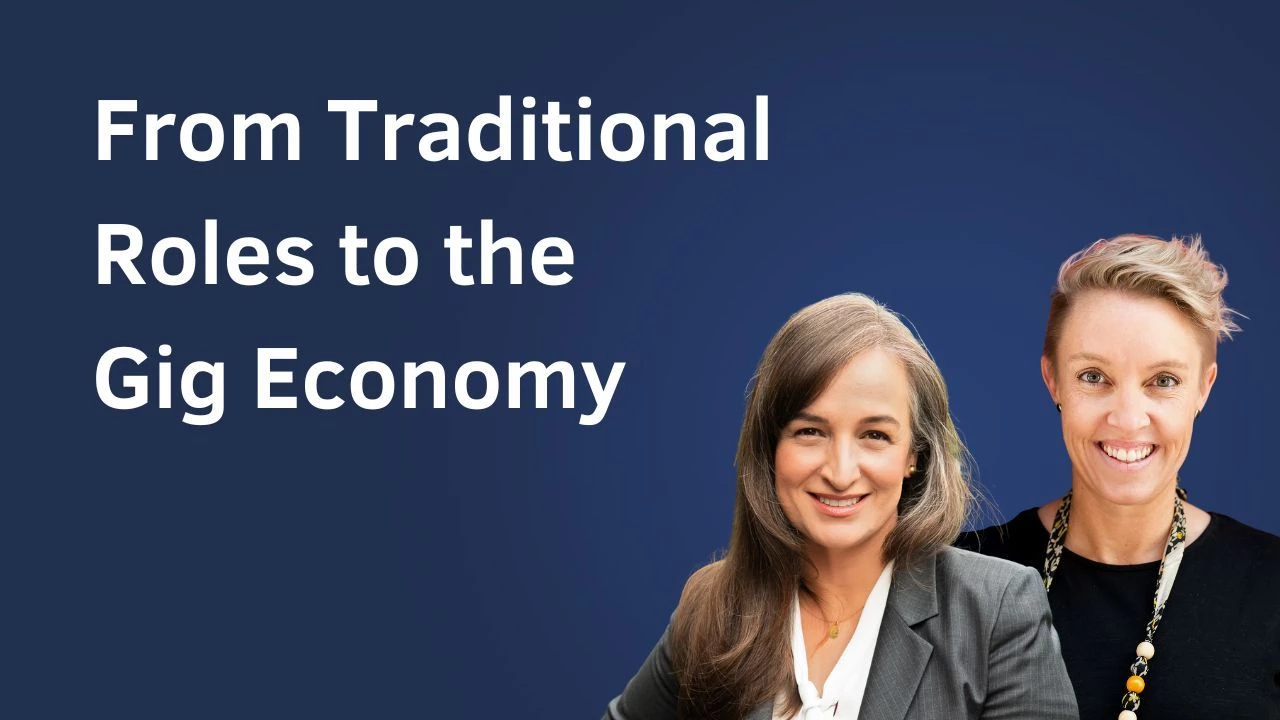Episode 204 - How to Become a Gig Executive: An Interview With Michelle Fotheringham

In this episode, we dive into the rapidly changing landscape of work preferences and the emerging talent ecosystem. Our guest, Michelle Fotheringham, is the CEO and Founder of Werkling, a talent-matching platform connecting business leaders with on-demand professionals to help these companies deliver projects and outcome-based work. Michelle Fotheringham understands how workforce preferences and the talent ecosystem are changing. She has worked in corporate in-house roles, consulting agencies, and as an on-demand talent with a portfolio career. So, when developing Werkling, she worked on designing a platform that creates a sense of community and belonging for those who have stepped outside the traditional work model.
During our discussion, she shared insights from her extensive experience working across various domains—from corporate in-house roles to being an on-demand talent. We also discussed the disruption of the gig economy compounded by the massive wave of corporate professionals who want to have more flexible work.
On-demand corporate professionals are disrupting the traditional work model
The key message from our conversation is that corporate professionals can shift to the gig economy. However, there are important considerations to be made about their ability and willingness to embrace a different way of engaging with employers.
Here are some of the key points Michelle and I discussed on the podcast:
Understanding On-Demand Talent: On-demand professionals, such as freelancers and gig workers, are primarily engaged for specific projects. The very nature of their work and their working environment differs significantly from traditional employees.
Changing Work Preferences: Flexibility is becoming paramount for professionals today—many desire to design their work-life balance, juggling projects across various organizations. Employers need to recognize and adapt to this shift.
Freelance vs. Traditional Work: Studies suggest a significant portion of the workforce is contemplating a shift to freelance work. Moreover, most in-demand talent has little to no interest in returning to the conventional work model.
The Disruption of the Gig Economy: The gig economy's influence is not just restricted to industries like driver and delivery services. It's ushering in a massive shift in the professional workforce, too. The idea of 'talent exclusivity' for employers might soon be a thing of the past.
Engaging vs. Employing: In the gig economy, organizations don't employ; they engage. And for those who wish to step outside the conventional mold, the gig economy welcomes them.
About our guest, Michelle Fotheringham
Michelle Fotheringham understands how workforce preferences and the talent ecosystem are changing. She has worked in corporate in-house roles, consulting agencies, as on-demand talent with a portfolio career, and now as the founder and CEO of Werkling. She's on a mission to help leaders create more nimble, healthy, future-ready teams. Using their talent matching platform, Werkling connects business leaders with exceptional on-demand talent who deliver projects and outcome-based work. At the same time, they are focused on creating a sense of community and belonging for those who have stepped outside the traditional work model. Talent x Tech x Community.
Resources mentioned in this episode
Other resources from RenataBernarde.com :
